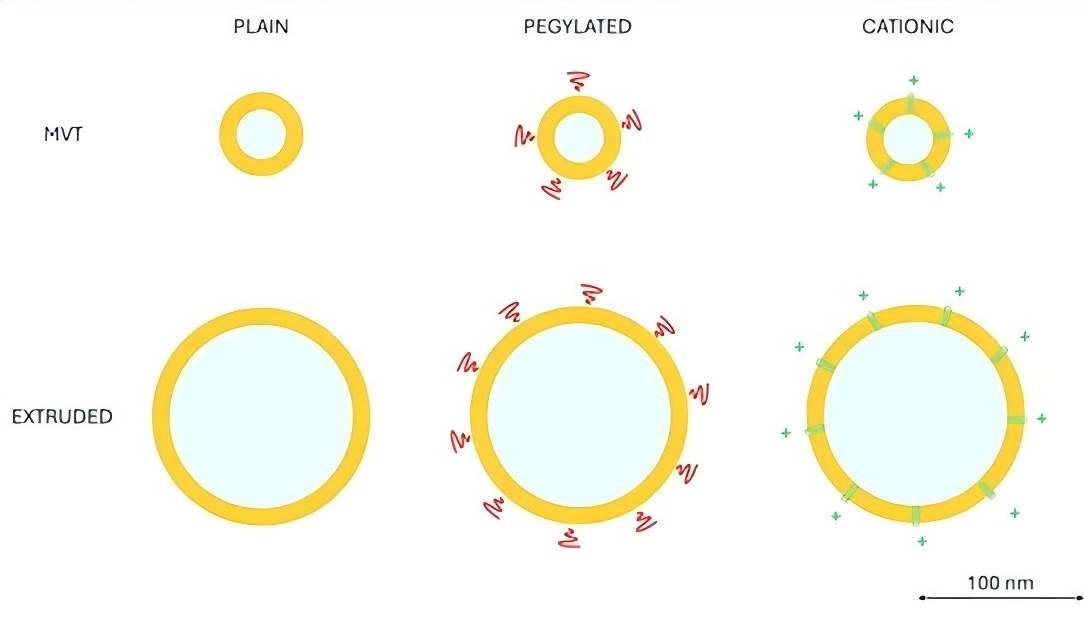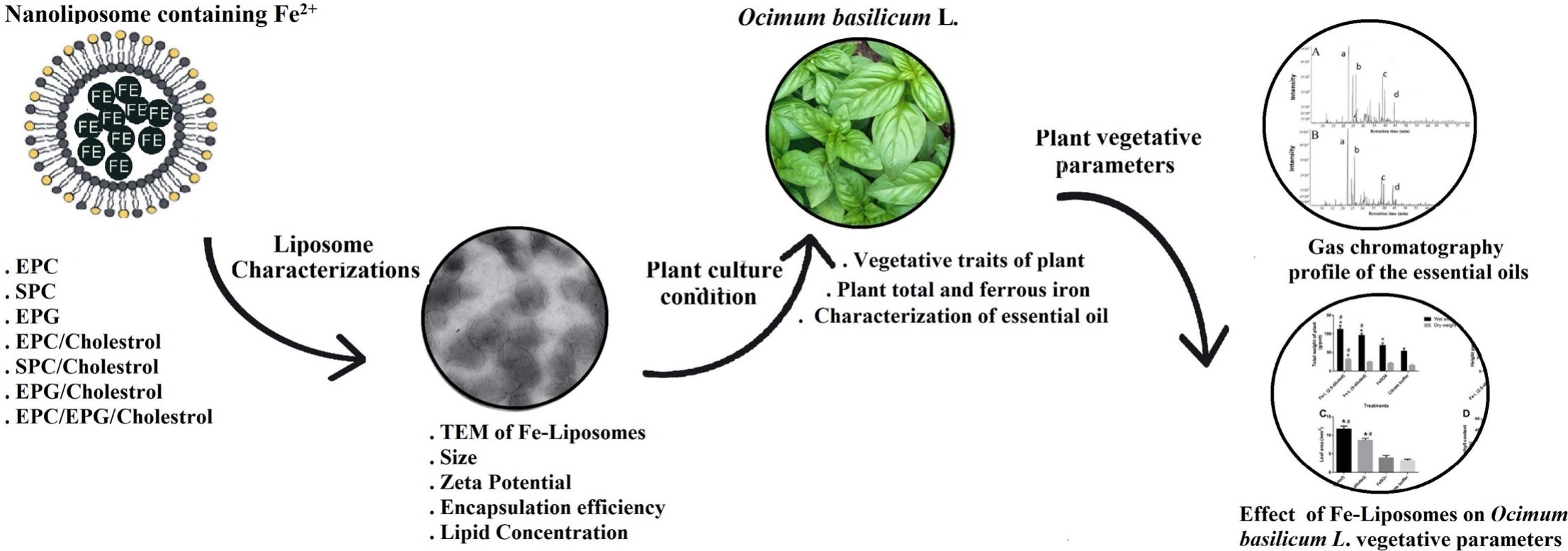Liposome Formulation for Agricultural Research
Inquiry
Liposomes are structural entities composed of a lipid bilayer surrounding an aqueous solution. Their distinctive characteristics have led to numerous applications in diverse scientific and technological domains. In the realm of agricultural chemicals, liposomes can be utilized to augment the effectiveness of pesticides and facilitate the delivery of essential nutrients. CD Formulation has developed an advanced platform for liposome applications in agriculture. Several studies have shown that the activity dynamics of toxins and antimicrobials are closely related to their use in agriculture and animal husbandry. Therefore, innovative delivery methods for toxins and antimicrobials are becoming increasingly important in the agricultural sector.
Why Are Liposomes Needed in Agriculture?
Liposomes play a crucial role in the agricultural industry, serving as valuable models for alternative natural systems to facilitate research. For example, they can be utilized to mimic plant transport processes and explore protein functions such as permeability and pH tolerance. Moreover, liposomes are instrumental in studying trans-membrane metabolism of plant cell organelles and investigating pollen drying tolerance, toxins, and pesticides' impacts on plants. In commercial applications, liposomes have been employed as carriers in slow-release or delayed-release insecticide formulations, offering an environmentally friendly and safe method for delivering active agents into the plant vascular system. Additionally, liposome-based biosensors have demonstrated excellent performance in directly detecting pesticides in food and drinking water. Furthermore, within the veterinary field, the use of liposomes has shown promise in extending the bioactivity of vaccines and antibiotics.
Main Applications of Liposomes in Agricultural Research
Liposomes may serve as carriers and active agents for pesticides and fertilizers, thereby promoting their absorption in crops. Our objective is to develop a broader range of liposome products that are beneficial to sustainable agriculture based on our liposome platform.
|
Applications |
Case Studies |
Pesticides and insecticides
- Liposomes can enhance the delivery of pesticides to crops and also function as a carrier for the slow or delayed release of pesticides, thereby promoting environmental friendliness and facilitating the absorption of active ingredients by plants' vascular systems.
|
Case 1-Liposomal formulations containing the fungicide fludioxonil (FLUD)

Fig.1 Schematic representation of the types of liposomes used for the delivery of FLUD to Botrytis cinerea. (Agnusdei A, et al, 2024) |
Fertilizers
- Liposomes are used as fertilizers to increase crop yields and reduce environmental impact.
|
Case 2-Nanoliposome fertilizer containing Iron (II) element

Fig.2 Schematic representation of nanoliposome fertilizer. (Farshchi HK, et al, 2024) |
Biosensors
- Liposomes can be utilized in the development of biosensors to detect pesticides in food and drinking water.
|
Case 3-Liposomal Glutathione Drink
- A novel liposome-based nanobiosensor has been developed for the detection of organophosphorus pesticides. Nanoscale liposomes provide an optimal environment for stabilizing AChE effectively and can serve as fluorescent biosensors.
|
Our Agricultural Liposome Technology Research Capabilities
- Powerful liposome platform and encapsulation technology.
- Professional analysis platform and means.
- Top technical talent and teams.
- Consistently uphold the tenets of sustainable agriculture.
Explore Our Liposome Formulation Services for Agricultural Research
Liposome Customization Services
We can design and synthesize liposomes with tailored functions and properties to meet customer-specific needs, including drug delivery objectives, functionality, and size specifications.
Universal Liposome Characterization
The physicochemical properties of liposomes can influence the performance of liposomal drugs, encompassing aspects such as liposome morphology, surface characteristics, structure and integrity, charge distribution, drug encapsulation efficiency, phase transition temperature, particle size distribution, etc.
Liposome Formulation Process Development
This service assesses the impact of various factors—such as drug-to-fat ratio, preparation method, loading technique, buffer type and ratio, API dosage, and water-oil ratio—on liposome characteristics and functionality. By adjusting these parameters, we can refine the structural properties of liposomes.
As a pioneer in liposome technology, CD Formulation is committed to harnessing our exclusive liposome technology to drive innovation and foster growth in agriculture. Please feel free to contact us if you need any assistance.
References
- Agnusdei A, Maurelli AM, et al. Fungicide-Loaded Liposomes for the Treatment of Fungal Diseases in Agriculture: An Assessment of Botrytis cinerea. International Journal of Molecular Sciences. 2024; 25(15): 8359.
- Farshchi HK, Azizi M, et al. Synthesis and characterization of nanoliposome containing Fe2+ element: A superior nano-fertilizer for ferrous iron delivery to sweet basil. Scientia Horticulturae. 2021 Jun 1; 283:110110.
- Vamvakaki V, Chaniotakis NA. Pesticide detection with a liposome-based nano-biosensor. Biosensors and Bioelectronics. 2007 Jun 15; 22(12): 2848-53.
- Kutasy B, Kiniczky M, et al. 'Garlic-lipo'4Plants: Liposome-Encapsulated Garlic Extract Stimulates ABA Pathway and PR Genes in Wheat (Triticum aestivum). Plants. 2023; 12(4): 743.
How It Works
STEP 2
We'll email you to provide your quote and confirm order details if applicable.
STEP 3
Execute the project with real-time communication, and deliver the final report promptly.
Related Services




